MuShop is a cloud-native reference showcase app of several Oracle Cloud services. The app implements an e-commerce site for cat products built as a set of Microservices. The name MuShop leans on the term Microservices: Microservices –> μ –> Mu –> Meow –> MuShop. The code itself is hosted on GitHub. There are two implementations of MuShop, one is the Basic Deployment which runs entirely on the Oracle Cloud Free Tier. The other one is the Complete Deployment which is deployed on a Kubernetes cluster such as Oracle Kubernetes Engine (OKE). In this post, I will cover the Basic Deployment of MuShop.
Basic Deployment of the MuShop app
The basic deployment uses the following components of your Always Free Tier:
- 1 or 2 Compute Instances
- Autonomous Database
- Load Balancer
- Virtual Cloud Network
- Private Subnet
- Public Subnet
- Internet Gateway
- NAT Gateway
- Service Gateway
- Route Tables
- Security Lists
Terraform is used to create the technology stack which makes it super easy to get MuShop up and running in just a couple of steps:
- Download the latest MuShop basic stack zip file from GitHub
- Login to your Oracle Cloud Free Tier
- Import the stack under Home > Solutions and Platform > Resource Manager > Stacks > Create Stack. Just drag and drop the zip file into the box on the top, giving it an optional name and description and hit Next
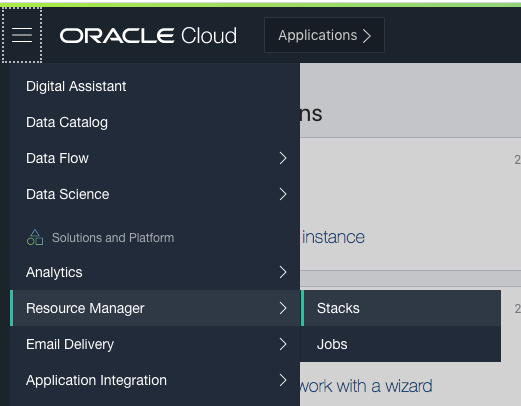
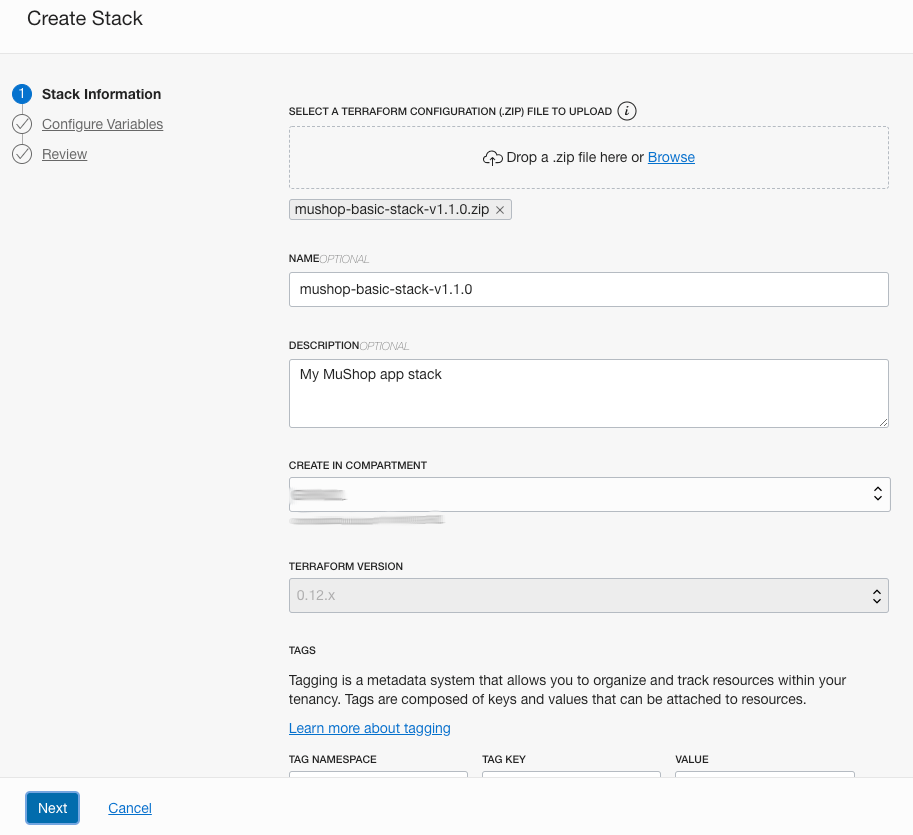
- Choose an optional database name and Compute node count and hit Next
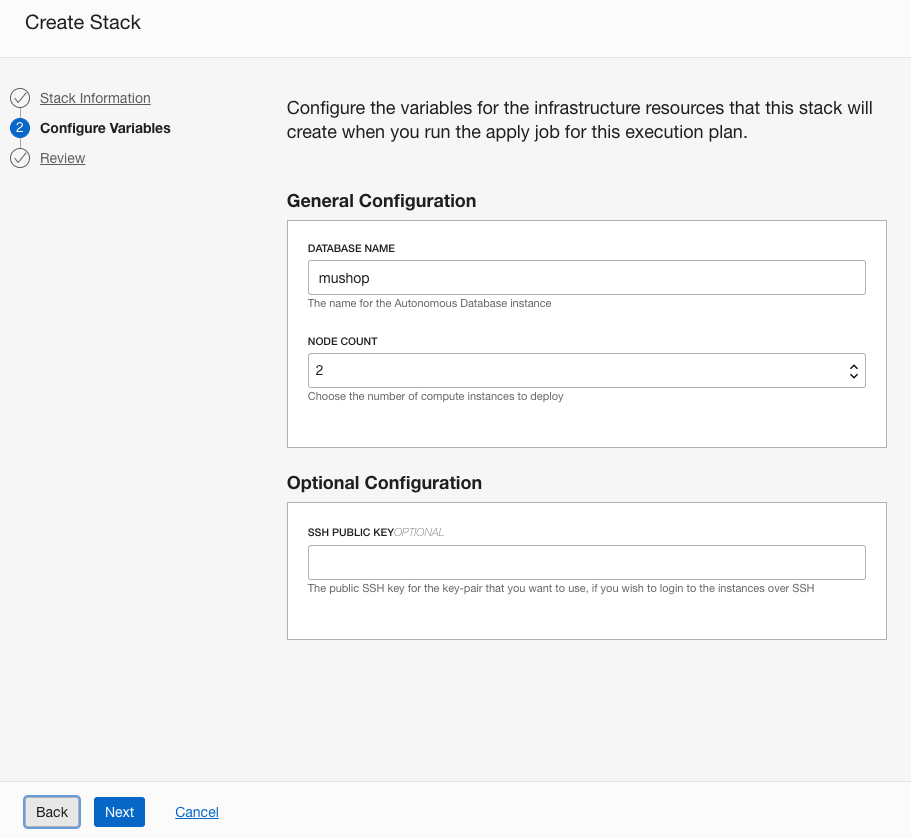
- Double-check the confirmation page, make sure everything looks correct and hit Create
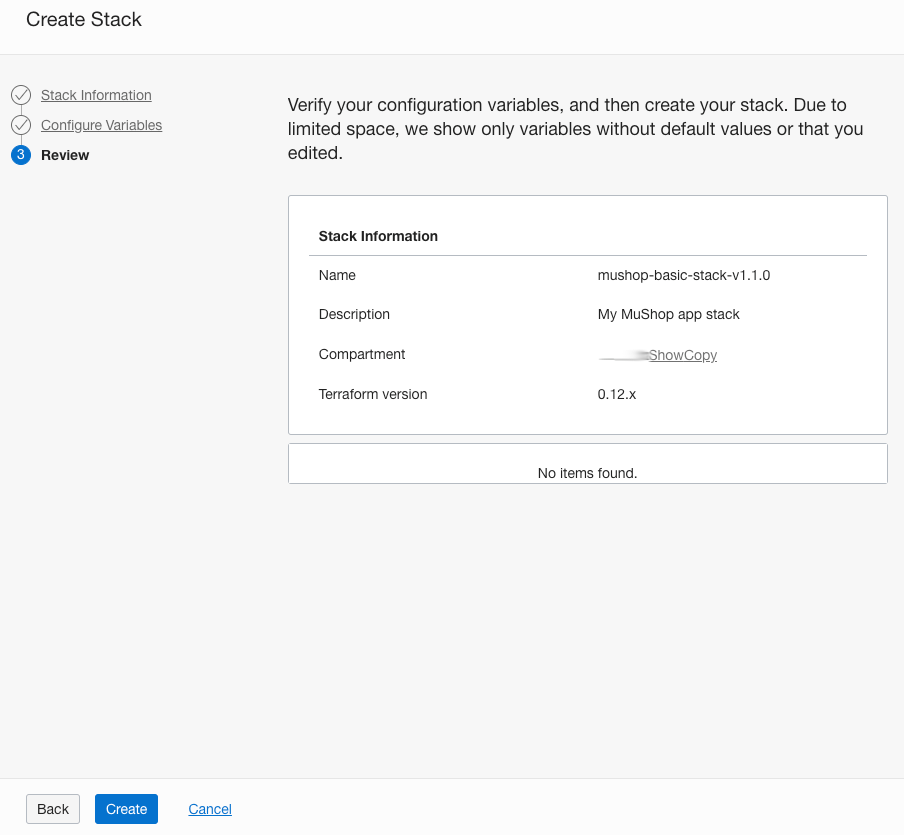
- The Stack details page will open, hit Terraform Actions > Apply > Apply

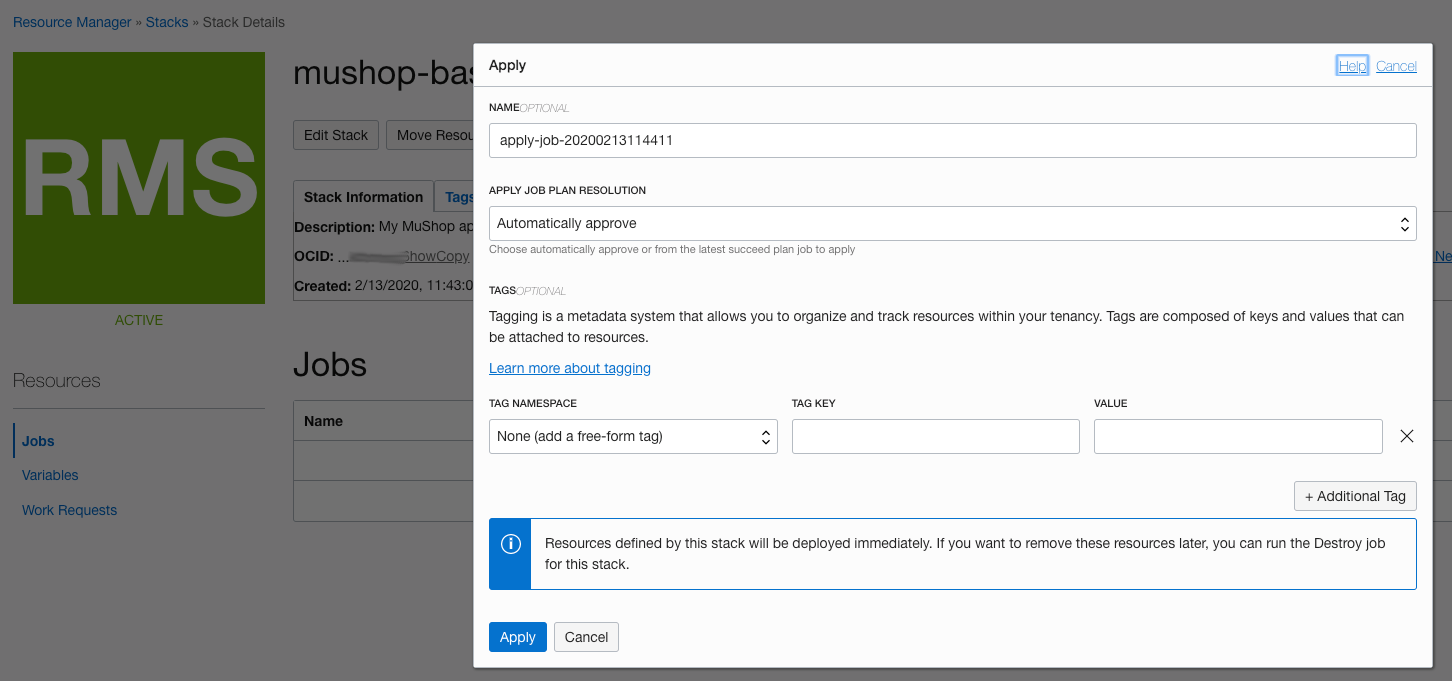
That’s it! All the cloud resources and the MuShop app will be automatically created and deployed which may take a couple of minutes. The public HTTP URL to the app will be displayed as lb_public_url at the very end of the Terraform script output and you can also retrieve it in the Outputs pane later on.

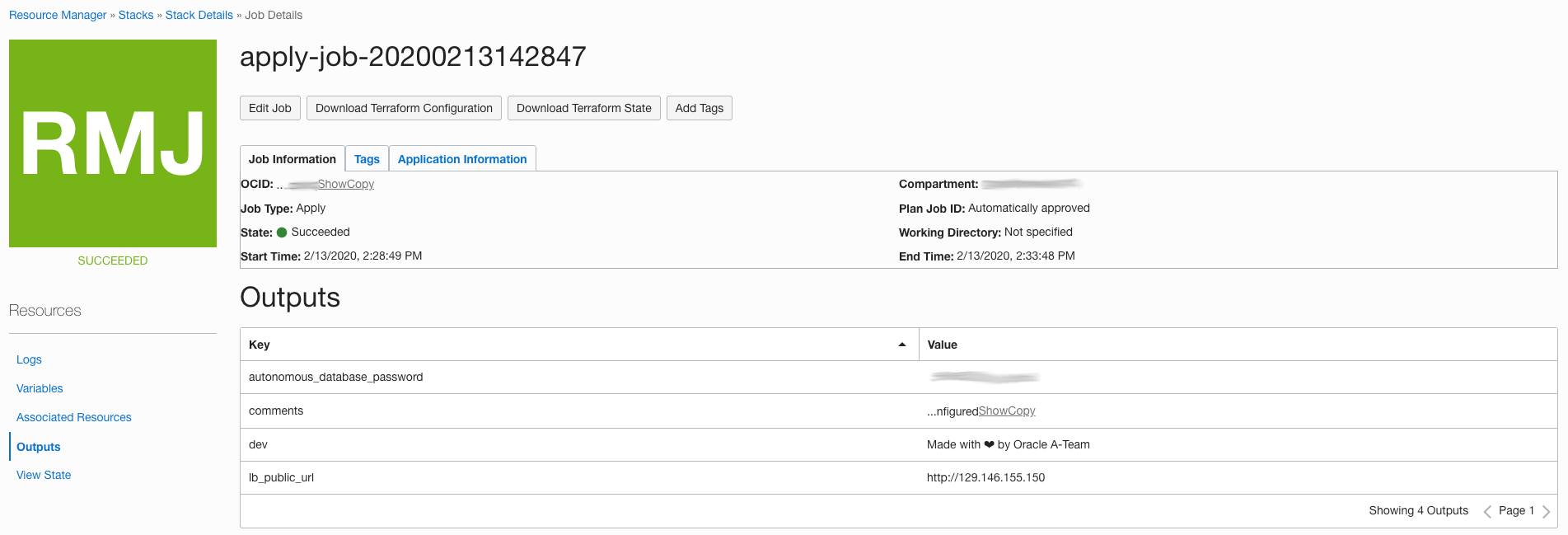
It will take a few seconds after the provisioning before you can access the URL as the app is still being configured. After a bit, head to your browser and open the page:
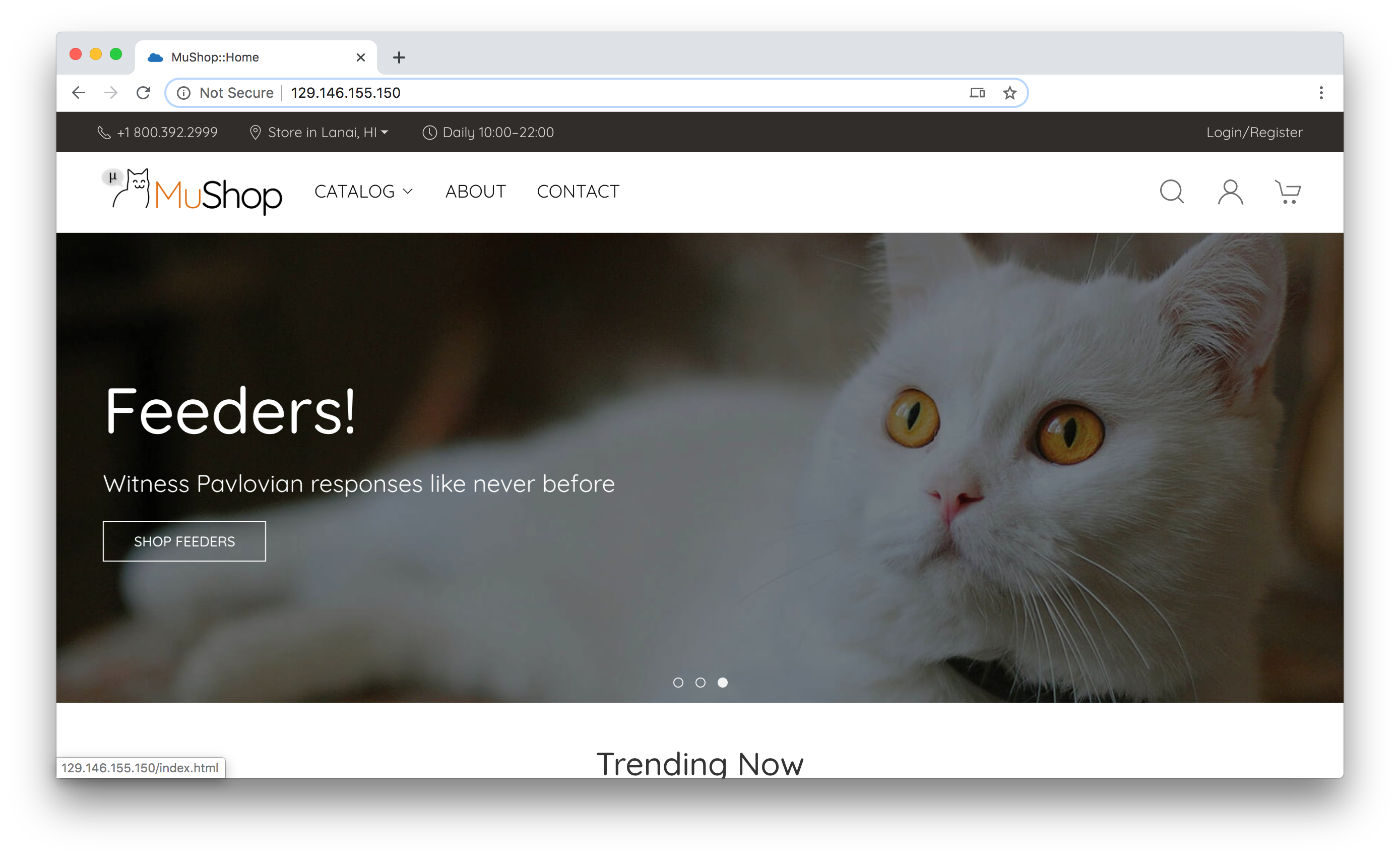
What’s next?
Congratulations! You now have MuShop up and running. So what’s next? Take some time to explore the app and the resources that have been deployed in Oracle Cloud. Familiarize yourself with the components and feel free to poke around, stop and restart components, perhaps change some configuration parameters, etc. Last but not least, have a look at the Complete Deployment or the GitHub repo for a closer look inside the app.
Cleanup
Cleaning up the MuShop Basic Deployment can also be done in just a few simple steps:
- In the Oracle Cloud Console, return to your Stacks under Home > Solutions and Platform > Resource Manager > Stacks
- Select the stack you have previously created (there should only be one)
- In the Stack Details, click on Terraform Actions > Destroy and confirm the destroy job
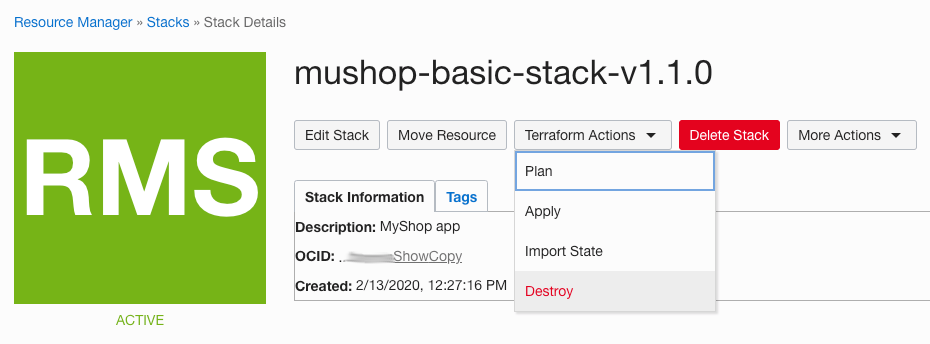
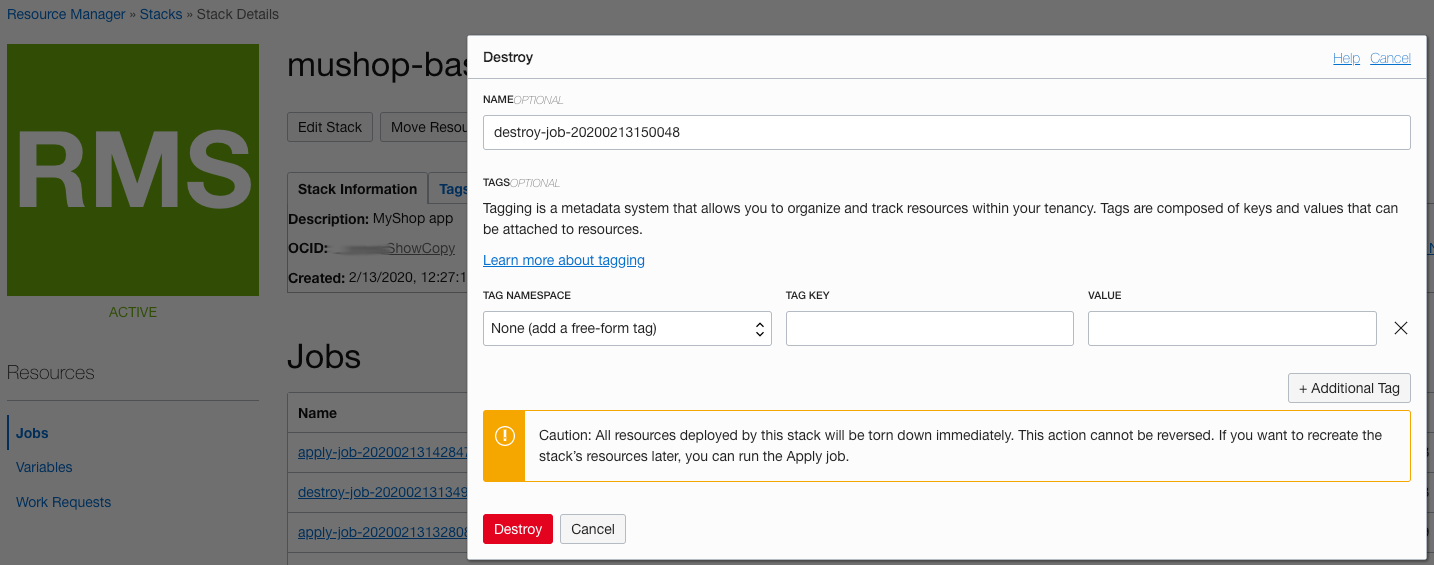
- Once the destroy job has succeeded, delete the Stack via the Delete Stack button and confirm
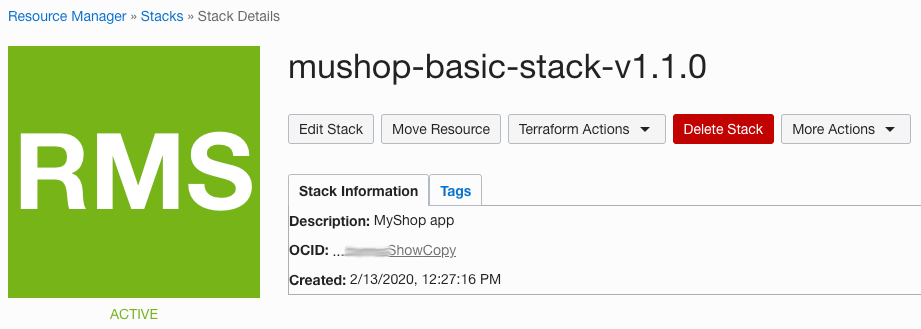

Once the operation has succeeded, you will have no more stack visible. Note, you will see the cloud components in Terminated state, this is expected. Don’t worry, they will no longer count towards your resource limits.
